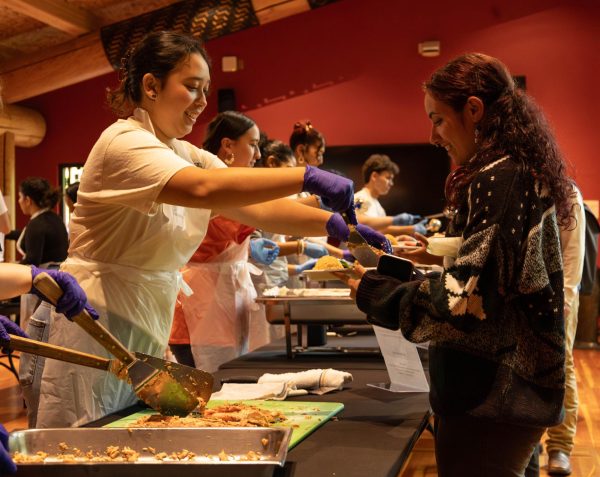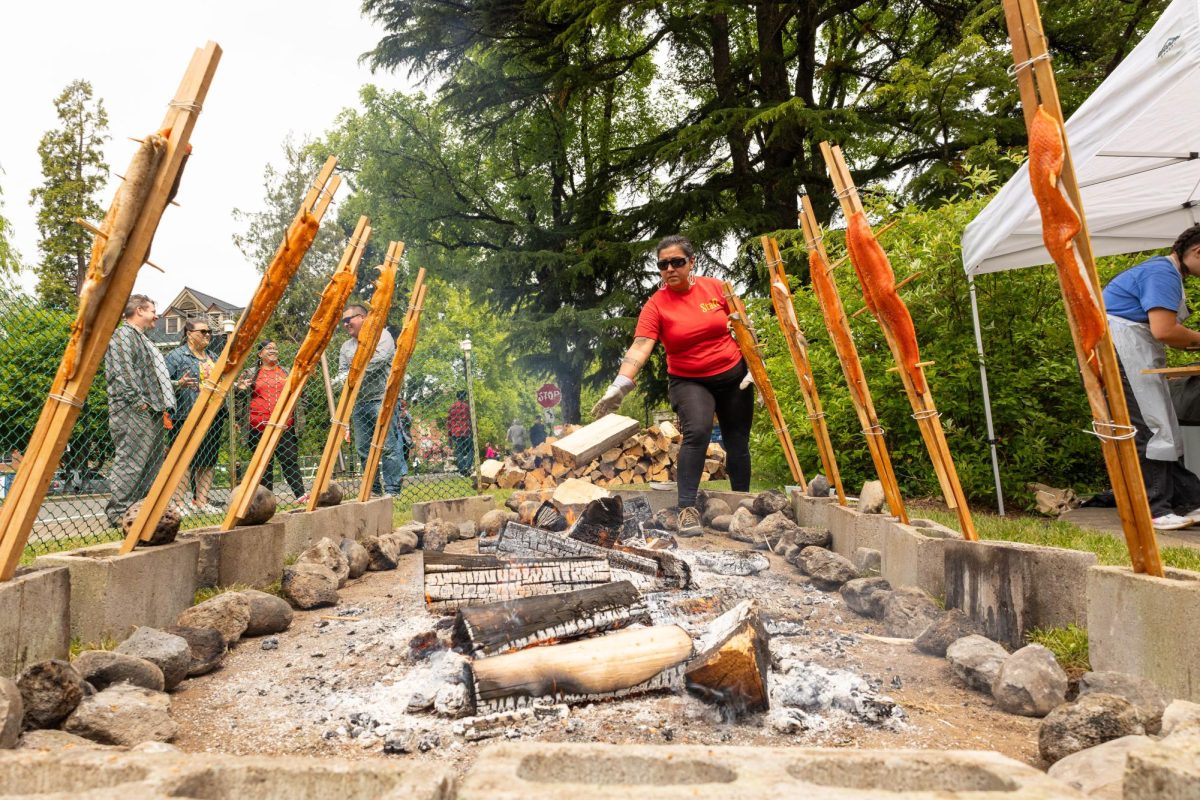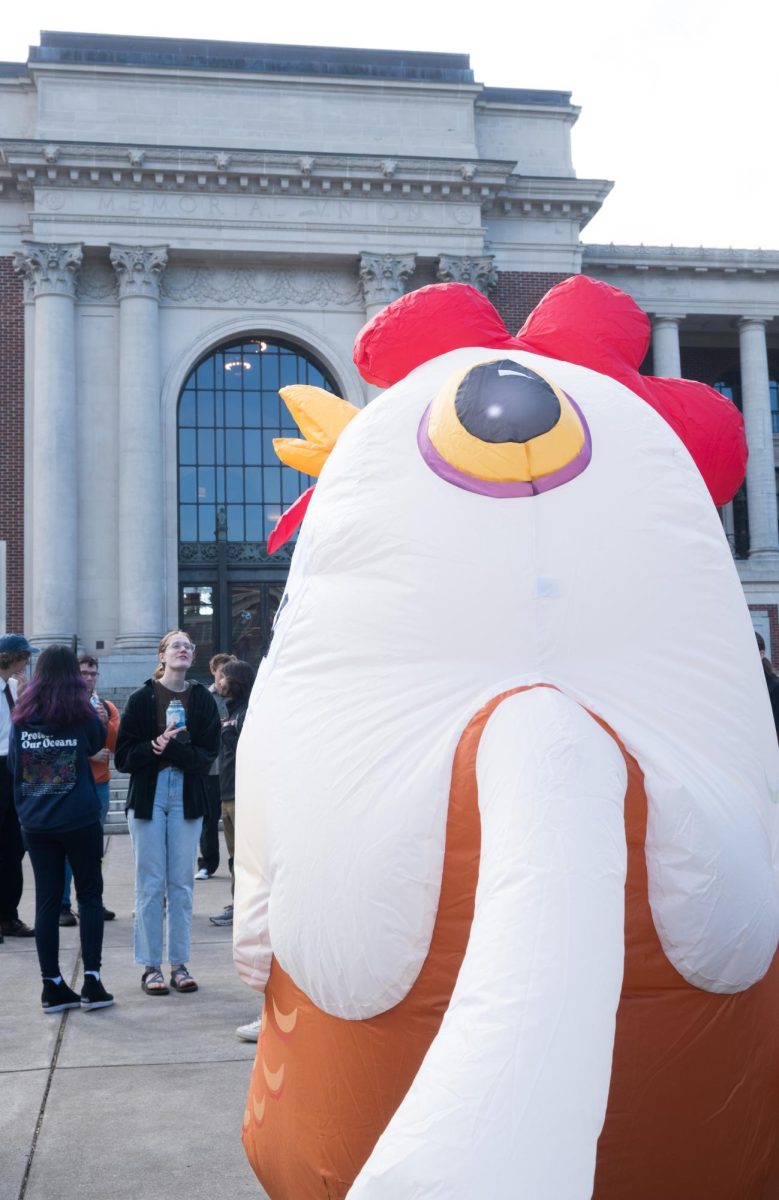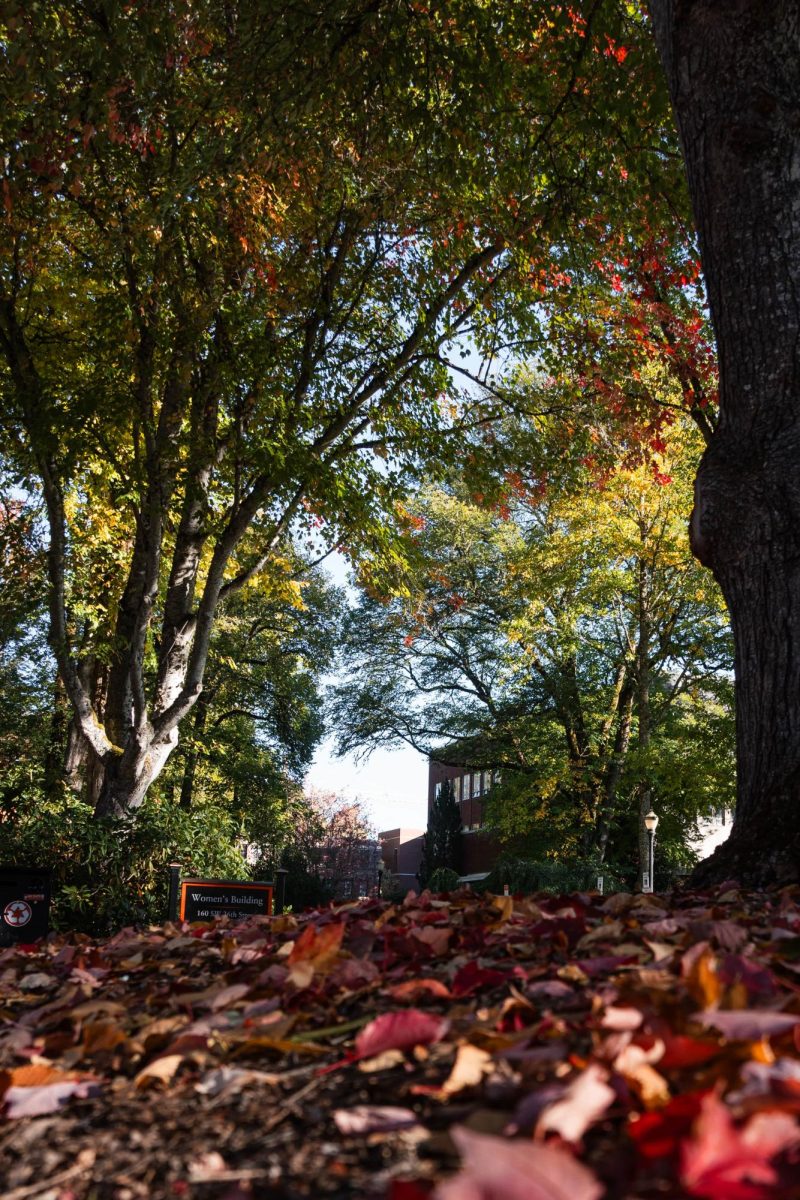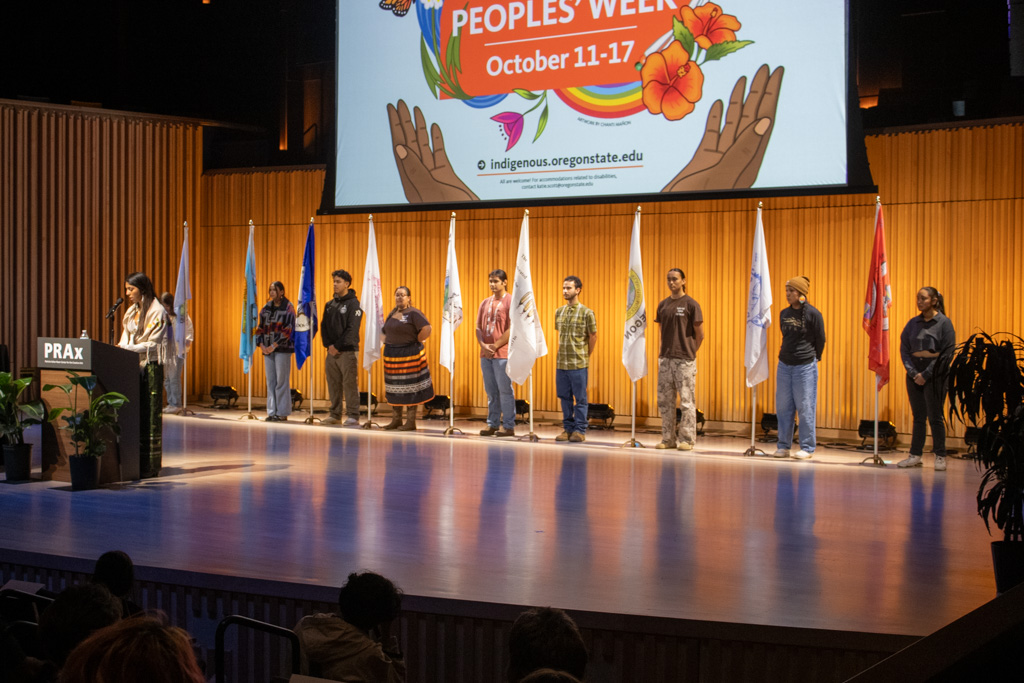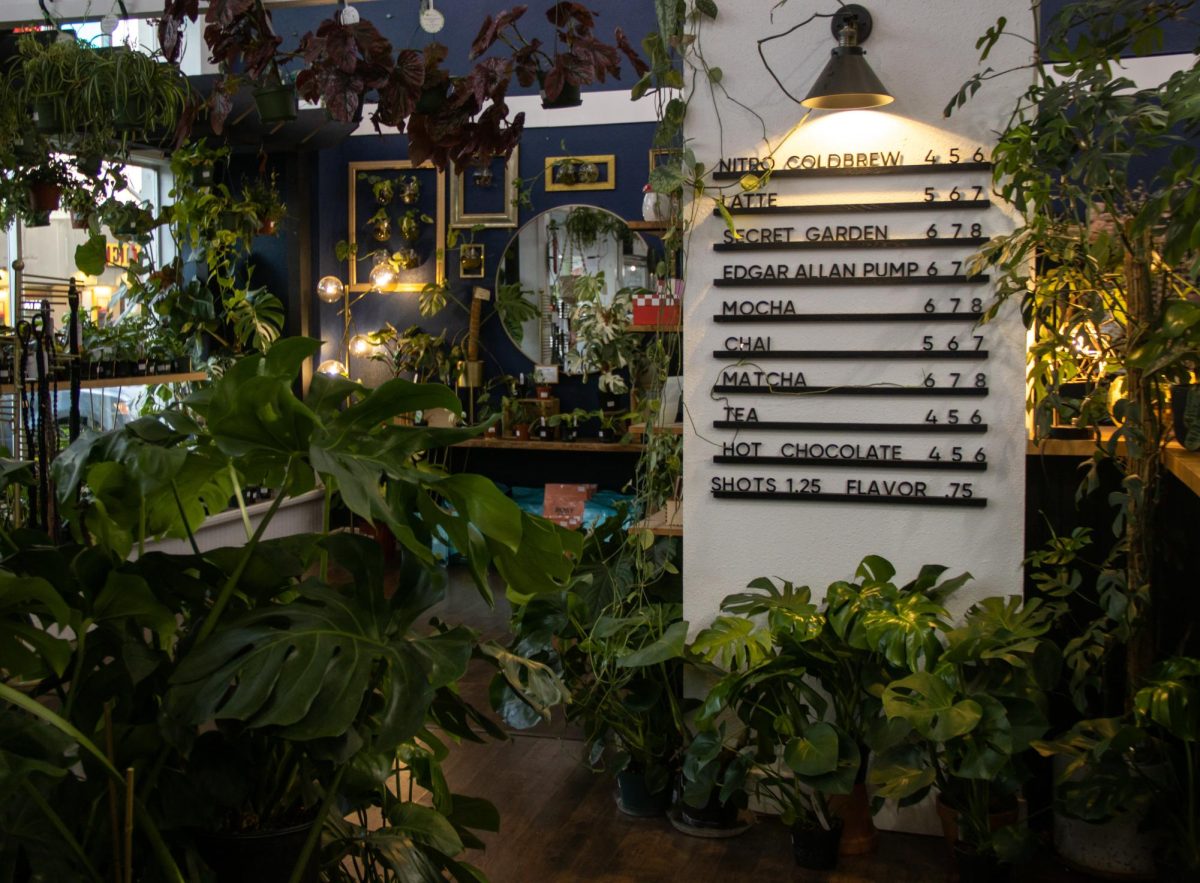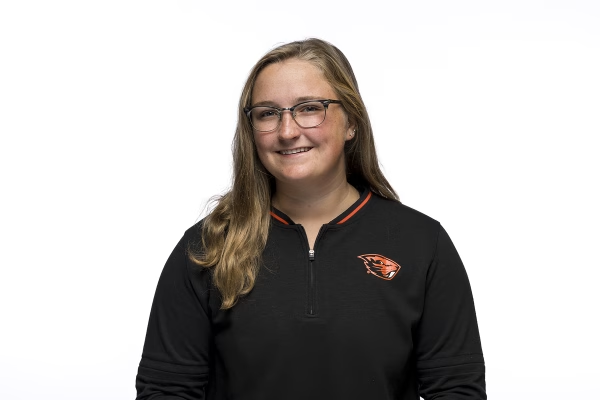Smoke rose gently from the open fire in front of the Oregon State University Kaku-lxt Mana Ina Haws building, where salmon sizzled on wooden stakes.
For fourth-year Cloe McMichael, this year’s 26th annual Salmon Bake was more than just an event. It was a powerful continuation of culture and salmon’s sacred role in tribal tradition, all in one.
“The whole purpose of this event is to honor the spring salmon run,” McMichael said, “Salmon is one of the keystone species of our people and one of the main things a lot of people within the Pacific Northwest eat.”
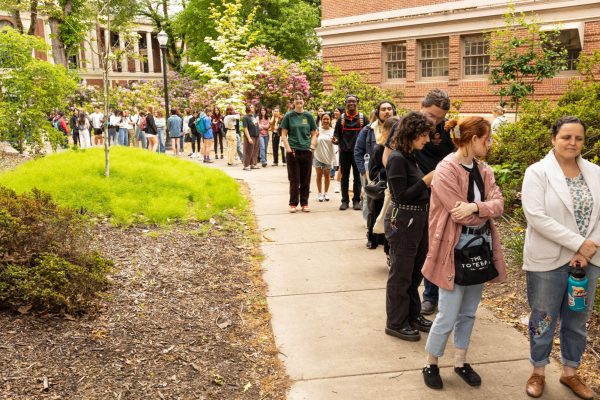
McMichael, who is majoring in history, ethnic studies and Indigenous studies, has worked at the Native American Longhouse Ina Haws for several years.
“I’m really emotional right now,” McMichael said, “about my last salmon bake as an undergrad.”
As a member of the Confederated Tribes of the Umatilla Indian Reservation, McMichael spoke on her deep-rooted want of being involved in the meaningful ceremony.
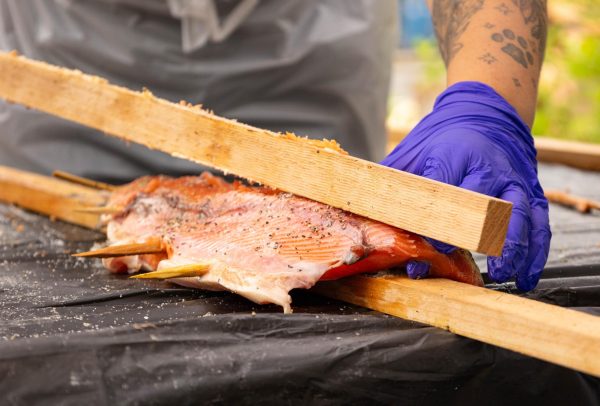
The salmon run is both seasonal and sacred for Indigenous communities. The salmon are the first fish to return home to their spawning grounds, and their arrival marks a ceremonial moment.
Luhui Whitebear, an assistant professor in Indigenous studies at OSU, co-led the Salmon Bake this year. She was the former center director of the Ina Haws.
“The first one happened in the ‘70s,” Whitebear said. “(The Salmon Bakes) used to happen at Avery Park.”
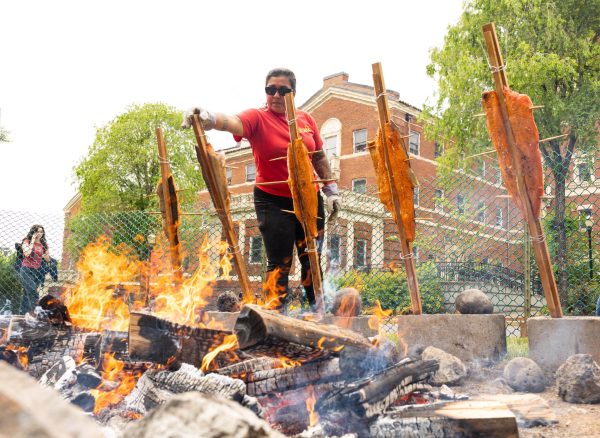
This year’s ceremony was also made possible through the efforts of Janelle Whitman of the Nez Perce Tribe, an OSU alumna who worked with the administration to allow open-fire ceremonies on campus.“We always gotta shout her out,” McMichael said, “because we wouldn’t be able to do this without the work that she did.”
For McMichael and many others, the Salmon Bake represents the continuation of tradition and belonging for the Indigenous community at OSU.
“A long time ago, the elders of our community worked really hard to start this event … for Native students to be able to have this ceremony when we’re away from home,” McMichael said. “It’s about having Native students be able to be in contact with their traditional foods … and being in this community.”
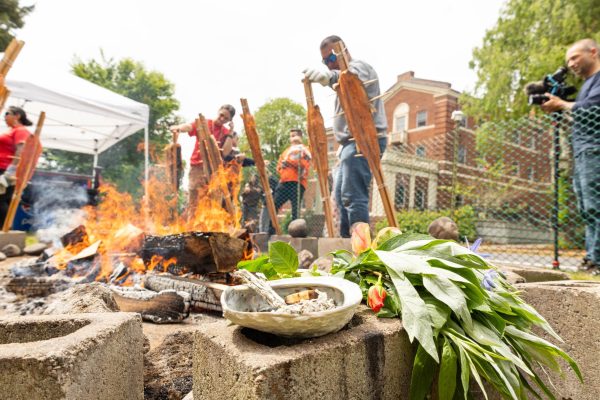
The connection to culture is reflected from not only the ceremony, but the care taken with every detail in preparing the salmon.
According to Whitebear, the salmon comes from tribal fishers, which gives the individuals coordinating the event peace of mind knowing that the fish were sourced ethically.
This year, the bake continued to represent the connection between Native Americans and Pacific Islander communities, as they both took part in the event.
“Both communities have worked really hard to support each other and uplift each other,” McMichael said.
“Each tribe has a different style,” McMichael said. “We do it more of an intertribal style … It’s not like we’re following one specific rule. We’re all putting our hands in the bucket.”
